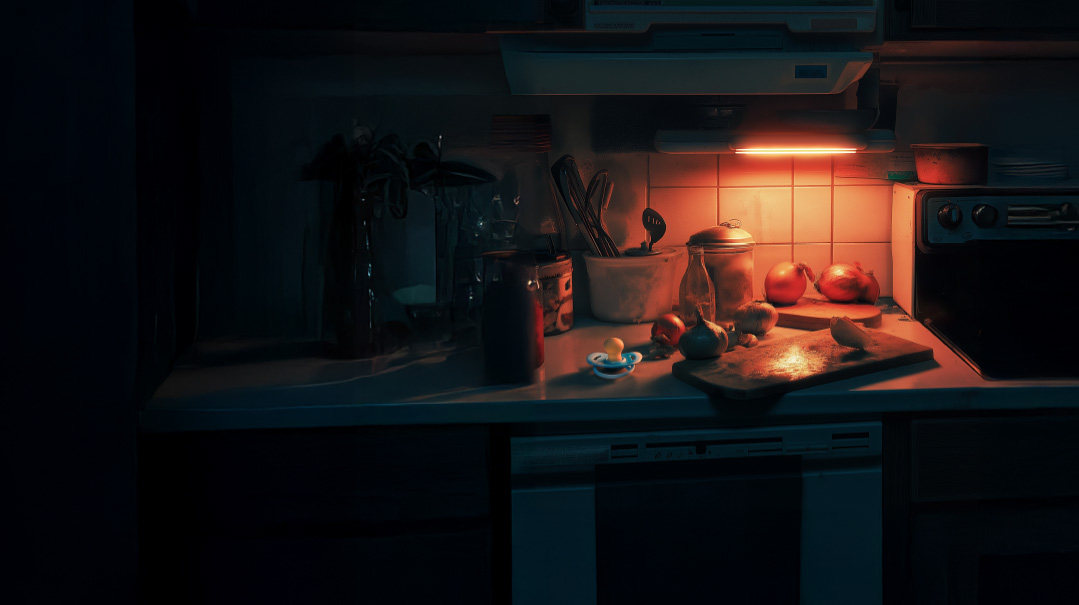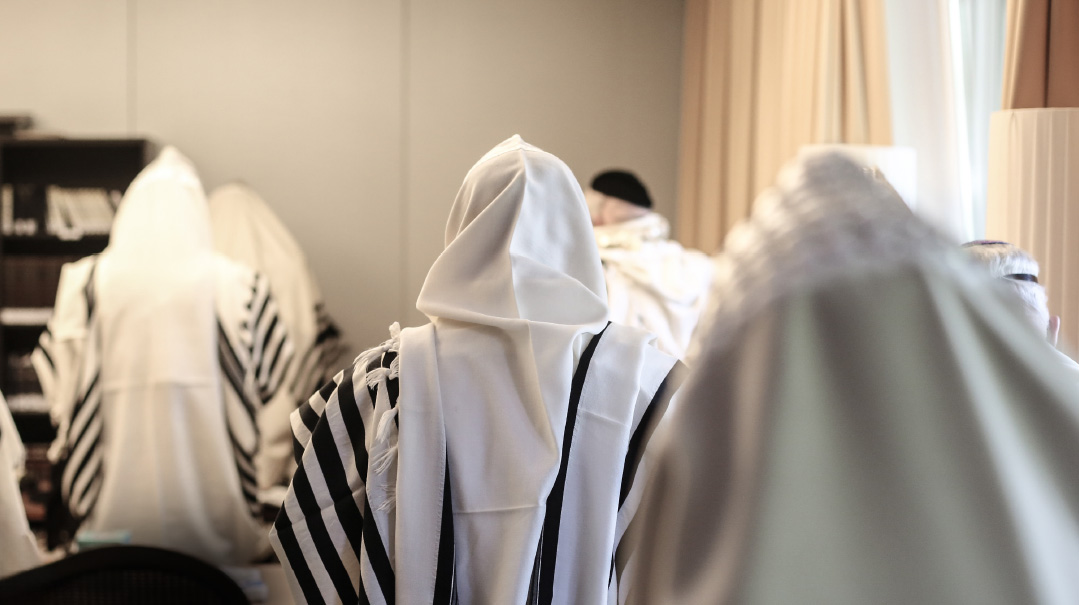ALL I NEED
| August 19, 2020I got into my car and started to sob. So much more than a glass had been shattered the night I stood under the chuppah

As told to Yehudis E. Lieber
Today is my first anniversary and I’m standing in my bedroom, with its fading teenage posters, collages of high school pictures, and the faint smell of childhood.
Technically, it’s my first anniversary, but is it still called that if I’m no longer married, and my get, less than 24 hours old, is sprinkled with tears that haven’t quite dried?
My neighbors, my coworkers, everyone is gentle and cautious around me, but some of them think to themselves — I can see it in their eyes, hear it in their voices — What is the world coming to? Is nobody willing to work on their marriages anymore? Did nobody tell her that marriage is not disposable?
But to me, marriage was never disposable; it was fine china, delicate and precious. And though I discovered pretty quickly that mine was full of chips and cracks, I still tried my best to polish it to a sheen.
That’s why, even after that dreadful night when it became clear that my husband will never have the ability to be in a healthy relationship, still, the thought of ending my marriage was excruciating. That night I thought I was living through the worst moments of my life, but sometimes, it’s only after your eyes are awash with tears that your vision clears like never before. Because now that I am freshly divorced, I’m finally able to see that it is better this way.
I sit down at my desk and try to write a to-do list, of all things. After yesterday’s intensity — the relief and the grief, the shame and the pain — today, I long for normalcy. To get my life in order. But so far, my page is blank and all I’ve done is chew on my pen. There’s lots to take care of, but where do I start? The whole rhythm of my life has been interrupted and I have no idea how to begin a new one.
My phone rings, and I snatch it up, eager for distraction.
“Hello, Tova? How are you!?” There’s something familiar about the gushy voice, but I can’t quite place it. “It’s Racheli Rosen, now Blum. We haven’t spoken in ages! How have you been?”
Oh. Racheli Rosen. The last time we spoke was in high school, or maybe at her wedding a couple of years back. Is she calling now to scrounge for the latest gossip? Best to play it cool. Project the image that I’m okay and I’m not scared to talk straight.
“Did you hear that I get a mazal tov?”
“Oh, you do? How nice! Did you have a baby?”
So she really doesn’t know. When have I become such a cynic?
“Uh, no. My news is a bit… different. I uh, just received my get.”
I hear a sharp intake of breath, and I suddenly feel bad for putting Racheli on the spot like this. Yikes, this whole social thing is complicated. I rush to fill the awkward pause. “It’s okay, you don’t have to say anything. I’m sorry if I made you feel uncomfortable.”
Racheli coughs politely and then explains the reason for her call. She’s working on updating our alumni list and wants my current address. (What is my current address? Where do I live now? Decisions, decisions…) I tell her to keep me listed under my parents’ address and we wish each other well.
Suddenly fidgety, I go downstairs to find myself a snack. My mother is at the counter, cutting up vegetables for a soup, and she turns to me as I enter. “How’re you feeling, Tova?”
“I guess pretty much the way you’re supposed to feel the day after you get divorced.”
Ma looks pensive as she says, “Whenever I feel very down, I remind myself that Hashem is taking care of us. Like with the whole thing with Rav Fine.”
Rav Fine! A profound mix of both sorrow and comfort throb in my chest when I think of him.
Because it was he who I had run to, clutching the splintered shards of my heart, as soon as the trouble in my marriage got serious.
The first time we spoke, the rav listened intently as I poured out my story, interrupting now and then to ask a question. When I was done, my insides felt purged, as if they’d been relieved of a rotting load.
“Based on your description, it seems that your husband is unwilling — or unable — to change,” he said, looking at me with compassion. “Your situation is far from simple.” He then proceeded to outline strategies that might improve things slightly and help me cope.
But a few days later, after having tried each of the strategies without success, I made another appointment to speak to Rav Fine. And then another. This time, the rav looked solemn as I spoke, and when I finished, he said “Your husband’s parents should never have married him off. I’m not entirely sure you should be spending your life chained to such an emotionally unhealthy man.”
“But the rav doesn’t even know my husband,” I burst out, “maybe… maybe I’m painting him worse than he really is. Maybe I’m too overwrought to give an accurate picture. It’s so hard to be married to him, but it’s also hard to divorce him.” I swallowed hard, blinking furiously as sorrow pooled in my eyes, threatening to spill over. “I feel so bad for him,” I finished in a whisper.
“Would you like me to meet with him, to hear his side of the story, so I can advise you better?” he asked gently.
I nodded, unable to answer.
“Okay then, give him my number, and have him call me please. Let’s talk again afterwards.”
The rav met my husband on a Thursday. The next day, Friday afternoon, I sat down with a pen, took out a card, and after contemplating for a few minutes, I let the words flow. I described how alone and confused I had felt, and how grateful I was for the time, the guidance, and the compassion the rav had given me.
I bought a nice bottle of wine to accompany my card, and I knocked on the Fines’ door. The rebbetzin ushered me into the rav’s study, and the rav, after thanking me for my gift, gave me a clear and unequivocal psak: “Now that I met your husband in person, I have no doubts. The right thing for you to do is to seek a get.”
After thanking the rav, I got into my car and started to sob. So much more than a glass had been shattered the night I stood under the chuppah, so much more.
But I felt a certain measure of relief; it was so good to have received the gift of clarity.
And it was just in time. The next night, Motzaei Shabbos, we heard.
After the seudah Friday night, the rav had gone to lie down. And never woke up.
At the shivah, the rebbetzin thanked me emotionally, “My husband was so touched by your letter,” she said. “It was the last one he ever read.”
As for me, I was shown, in the most powerful way, that my Father ensures I have whatever —and whoever — I need always.
*All names have been changed
(Originally featured in Family First, Issue 706)
Oops! We could not locate your form.







